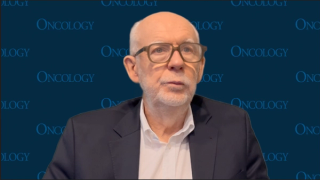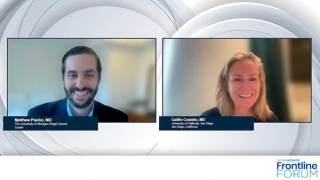
Multiple Myeloma
Latest News
Video Series

Latest Videos
Podcasts
CME Content
More News

Phase 2 data support further evaluation of frontline BCMA/CD3 bispecific antibody combinations in phase 3 trials.

Based on its mechanism of action, anito-cel may cause fewer instances of cytokine release syndrome and delayed toxicities vs other therapies.

After a median follow-up of 3.9 months, AZD0120 elicited an overall response rate of 96% among 23 patients with relapsed/refractory multiple myeloma.

Linvoseltamab monotherapy achieved minimal residual disease negativity in 95% of patients with newly diagnosed multiple myeloma.

Talquetamab plus teclistamab led to an ORR and CR or better rate of 79% and 53%, respectively, in multiple myeloma with true extramedullary disease.

Results from the CAMMA 3 trial showed that subcutaneous cevostamab achieved a 52.0% ORR in BCMA-naive relapsed or refractory multiple myeloma.

Experts at the 2025 IMS Annual Meeting discussed bispecific antibodies as treatment for multiple myeloma, highlighting various treatment strategies and real-world data insights.

Gintemetostat plasma concentrations increased with dosing across all 9 dose levels tested in a phase 1 study.

Results from the MagnetisMM-30 trial showed early ORR data with elranatamab/iberdomide in R/R multiple myeloma.

Outcomes were comparable in the transplant-ineligible population, with KRd and VRd producing identical progression or death rates of 30%.
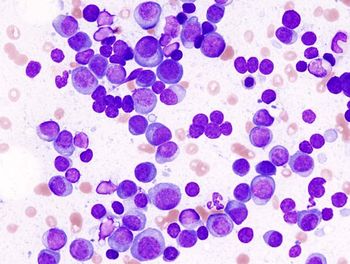
The 2.5 year progression-free survival rate was 80.5% with cilta-cel for this population, suggesting a potential cure fraction.

Giving cilta-cel in earlier lines of therapy leverages stronger baseline immune health and a more favorable TME to deliver enhanced clinical outcomes.

Elevated LDH levels were associated with worse PFS and OS outcomes in patients with relapsed/refractory multiple myeloma treated with elranatamab.

Teclistamab shows promising real-world effectiveness for relapsed/refractory multiple myeloma, with high response rates and manageable safety profiles.

From phase 3 trial updates to results on trispecific antibodies, ASH 2025 may feature a variety of practice-shifting presentations across multiple myeloma.

Experts from Georgia Cancer Center highlight ongoing retrospective studies, translational research, and other initiatives across different cancers.
![“[This approval] will be a quite dramatic change in our philosophy and practice in multiple myeloma," according to Joseph Mikhael, MD, MEd, FRCPC, FACP, FASCO.](https://cdn.sanity.io/images/0vv8moc6/cancernetwork/3cab3ada4c023b68c118240a512e31d72a7f931b-1200x628.png?w=350&fit=crop&auto=format)
Data from the phase 3 AQUILA study support the FDA approval of subcutaneous daratumumab in this population with smoldering multiple myeloma.

Belantamab mafodotin has been approved for multiple myeloma, despite the FDA’s ODAC voting against the treatment due to ocular toxicities.

Investigators are currently assessing the antibody-drug conjugate HDP-101 as part of a phase 1/2a study.

Venetoclax with bortezomib and dexamethasone led to a median PFS of 23.4 months compared with 11.4 months with placebo in patients with R/R MM.

Investigators plan to present detailed findings from the MajesTEC-3 study at a future medical conference and share them with regulatory authorities.
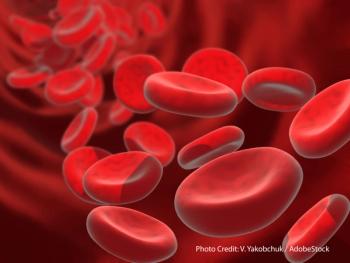
The addition of comprehensive bridging radiotherapy to extramedullary disease sites before CAR T therapy may improve PFS outcomes in multiple myeloma.
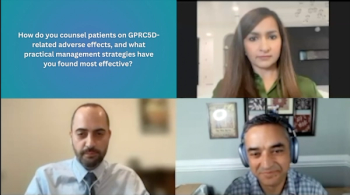
Unique toxicities presented with talquetamab tend to get progressively better as the treatment course continues, according to Prerna Mewawalla, MD.
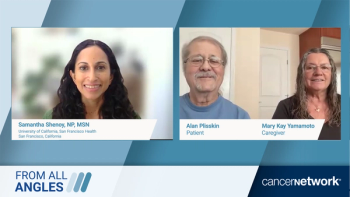
Panelists discuss how health care providers and patients should understand that talquetamab's unique adverse effects are temporary and resolve over time, even while continuing treatment, emphasizing the drug's excellent efficacy and the importance of removing stigma around its manageable toxicity profile.

Panelists discuss how effective caregivers should join support groups, maintain detailed records of symptoms and medications, attend all appointments, stay informed about myeloma research, and serve as active advocates who can communicate with health care teams when patients cannot.










